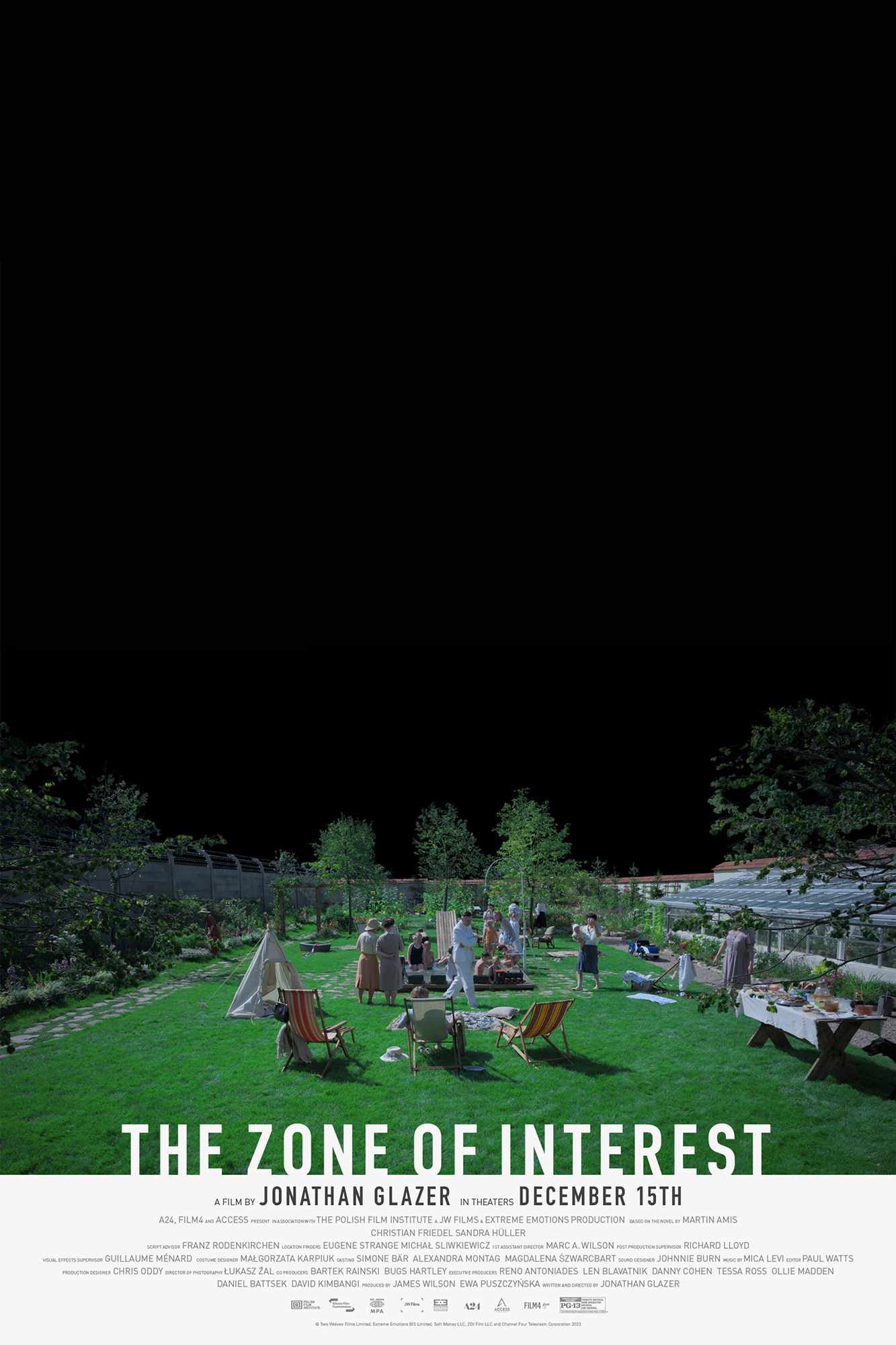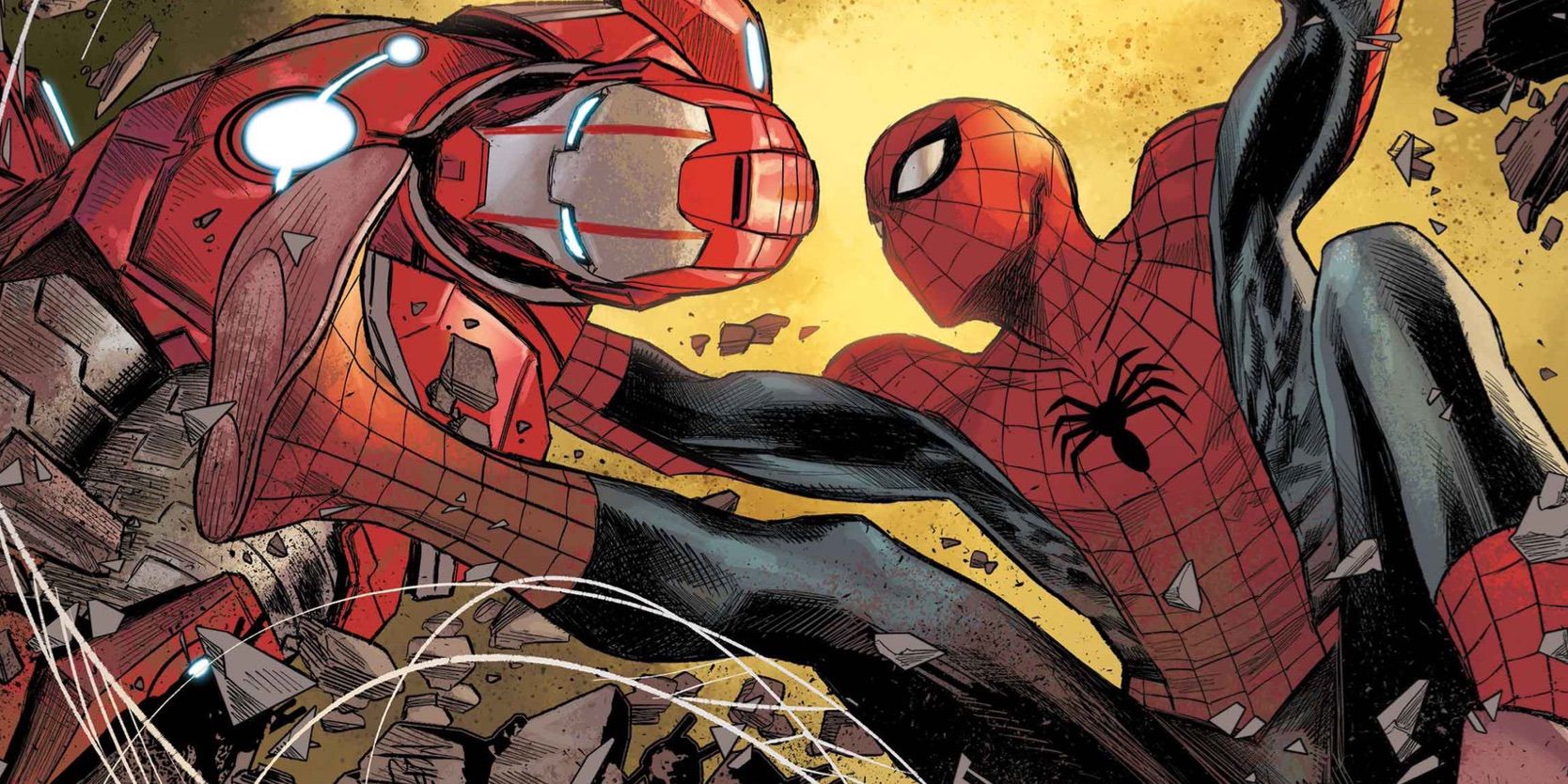Ten years after his last film, Jonathan Glazer returns with The Zone of Interest. It’s an exacting masterpiece that settles into a domestic rhythm that is horrifying in its gestures at normalcy. The Zone of Interest is based on Martin Amis’ novel of the same name, but many of its similarities end there as the director instead focuses on Rudolf Höss, the longest serving commandant of Auschwitz. Höss and his family live next to the concentration camp, their idyllic garden bordered by concrete walls laced with barbed wire. The contrast is striking, but it’s one that most of the film’s characters ignore — they focus on the smell of flowers in the garden instead of the stench of smoke billowing from chimneys or the sound of their children’s laughter rather than the screams and barking orders from soldiers and the people they are torturing.

The Zone of Interest
The Zone of Interest is a historical war drama by writer-director Jonathan Glazer. Set during World War 2, the film follows Rudolf Höss, the commandant of the infamous Auschwitz concentration camp, as he tries to build a dream home right next door to the camp.
- Release Date
- December 15, 2023
- Director
- Jonathan Glazer
- Cast
- Christian Friedel , Sandra Hüller , Ralph Herforth , Luis Noah Witte , Johann Karthaus
- Rating
- PG-13
- Runtime
- 105 Minutes
- Genres
- Drama , History , War
- Writers
- Jonathan Glazer
- Distributor(s)
- A24
The Zone Of Interest’s Details Underscore The Bigger Picture
To capture Höss’s family life, Glazer recreated their actual home, and, using archival testimonies, he was able to piece together what their life looked like during the time they lived outside the camp. The director also placed cameras statically around the set, allowing the actors, including Christian Friedel as Höss and Sandra Hüller as his wife Hedwig, to roam freely. It gives the film a voyeuristic feeling compounded by the fear that violence could break into the frame at any moment. That mounting dread, though, comes from what isn’t shown, rather than what is — a half-used lipstick that Hedwig finds in the pocket of a fur coat she wears or the way Rudolf casually cites a new crematorium’s efficiency, repeating the words “burn, cool, unload, reload” like a mantra.
These small moments — the casual acknowledgment of the unspeakable horrors committed by the Nazis, brushed off with casual cruelty — are as breathtaking as the moments that hint at the violence happening all around the family. Hüller, already earning acclaim for her brilliant turn in Anatomy of a Fall, is stunning here, a picture of domestic bliss with a sinister brutishness lying under the surface. Hedwig so desperately clings to the idea of the perfect life. When something threatens to undermine it, she brushes it off with cold indifference or a venomous outburst.
The Zone Of Interest Is Fascinated By The Sensory Experience Of Violence
The Zone of Interest uses color and sound to unsettle the audience even more. The latter is perhaps the most effective. In addition to the sounds we hear from beyond the walled garden, Glazer reunites with musician Mica Levi after their work together on Under the Skin. Their score is filled with otherworldly vocal sound effects and the film is bookended by two hellish, alien soundscapes. Contrasted against the period setting, Levi’s work further underscores the work Glazer is doing.
The Zone of Interest is, in essence, all about contrasts. The colors of the Hoss’ home life — grays, greens, blues — are muted against billowing flames coming from the crematorium or the bright red flower as its color consumes the screen. Glazer even takes this contrast further, using a detour outside the Höss family’s home life to follow a girl shot in the photo-negative as she traverses the grounds outside Auschwitz.
What’s most stunning of all, though, is how Glazer reaches into the future to show today’s custodians of Auschwitz. It’s an astonishing moment in a movie that, by this point in its runtime, has already announced itself as a bone-chilling masterpiece. Glazer uses Hoss’s domestic life against the backdrop of the Holocaust to evoke Hannah Arendt’s writings on “the banality of evil,” providing yet another study of how such atrocities could be committed. The Zone of Interest is one of the most unsettling movies of the 21st century, stunningly relevant, invasive by design, lodging itself in your head as an unforgettable cinematic experience.




